News
American couple stranded in British Virgin Islands by Hurricane Irma
the tourists have since been rescued from the island
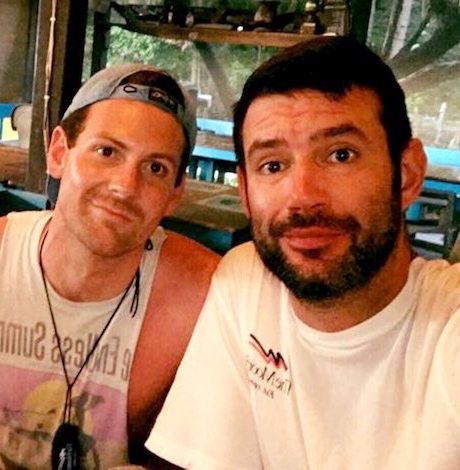
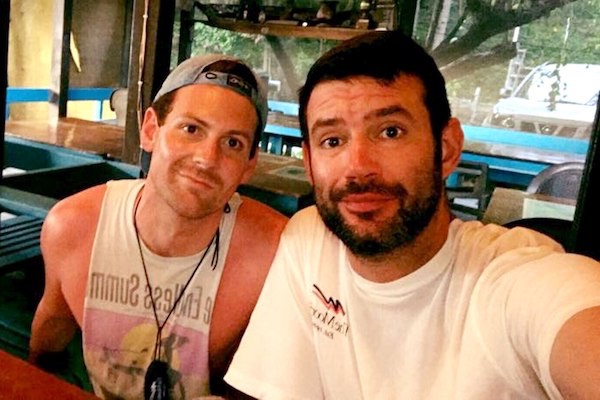
(Andrew Burruss and Kerman Haynes.)
Two American tourists were enjoying a two-week trip in the British Virgin Islands when they were left stranded after Hurricane Irma.
Atlanta residents Kerman Haynes, 40, and Andrew Burruss, 32, were visiting the island of Tortola when it was hit by the hurricane. The aftermath left the couple with almost no food and down to their last gallon of water.
“There is almost no aid on the ground here and we are almost out of food and water. The devastation is unimaginable as it was more like a thirty-three hour tornado than a hurricane,” Burruss texted People.
Haynes and Burruss took to Facebook to document their struggle and to plead for assistance.
“There is almost no aid on the ground here and we are almost out of food (uncooked ramen, cookies, peanut butter) and water as are most of the people here. The devastation is unimaginable as it was more like a 33 hour tornado vs a hurricane. We hiked 11 miles to the Capitol of Tortola this morning, which is Road Town, to get cell service, which means we had to leave our little room behind. As of right now, we have no place to stay tonight and people here are desperate,” Burruss writes in one post.
Haynes’ sister Karen, who hails from Richmond, Virginia, explained to People that the couple had to leave their hotel for safety reasons.
“They had to move because it wasn’t safe where they were staying,” Karen says. “There was looting and locals were getting violent because of a shortage of supplies. Andrew and Kerman only have one gallon of water left between them.”
Haynes blamed the British government for its treatment of tourists and locals.
“The Queen, and all of her ‘subjects’, should be ashamed and outraged. There are many foreigners and locals that need aid and evacuation. Many foreigners have been willing to provide their own assistance at their cost, only to be denied – shame on you Queen Elizabeth, et al, for not allowing these people, whom you depend upon for tourism dollars, illegal shell corporations, and tax evasion to sustain this economy,” Haynes writes.
While their friends and family tried to find a way to bring the couple home, their efforts were unsuccessful.
According to a Facebook post, Haynes was able to find a helicopter pilot to agree to take the pair to San Juan, Puerto Rico. On Monday, the couple was evacuated via helicopter from Tortola.
Political commentary & analysis
The impact of the Supreme Court’s Idaho ruling on trans people
The ruling is complicated & will have an immediate impact for trans youth in Idaho and could have national repercussions
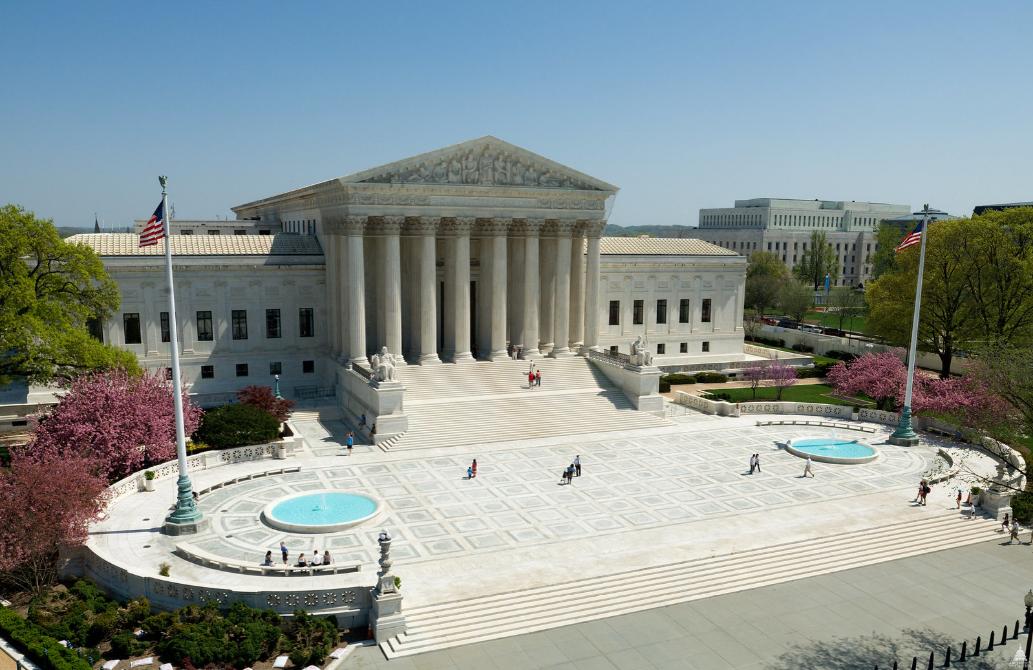
By Erin Reed | WASHINGTON – On Monday, news broke that the Supreme Court of the United States will allow Idaho to enforce its ban on gender-affirming care for transgender youth, a felony ban that makes trans care punishable by up to 10 years in prison for doctors who provide it to those under 18.
The ruling was not based on the merits of gender-affirming care or its constitutionality; rather, it addressed broad injunctions and a lower court’s ability to block a law fully at the earliest stages — a pet issue for some conservative justices who chose to take decisive action when transgender lives were at stake.
The immediate impact of the ruling is clear: transgender individuals will be barred from obtaining gender-affirming care in Idaho, except for only two plaintiffs, despite no rationale for how a ban is supposed to work for everyone but those two plaintiffs when doctors are broadly barred from providing care. In other states where anti-trans laws are being litigated, the impacts are more nebulous, and the ruling could impact many other issues as well.
The case in question stems from a challenge to Idaho’s felony ban on gender-affirming care. In December 2023, a federal judge ruled that the ban was likely unconstitutional, ruling in favor of two transgender minor plaintiffs using pseudonyms.
The judge stated that the right to obtain medically necessary care for your children is “deeply rooted in this nation’s history and traditions,” using the logic from the anti-abortion Dobbs decision against transgender care bans as an apparent preemptive strike at such language being utilized to justify bans on trans care should the case ever reach the Supreme Court.
The judge then issued a broad preliminary injunction that prevented the state from enforcing the law on anyone while the court process played out.
It was the breadth of the injunction that came under dispute in the Supreme Court, not issues directly related to the constitutionality of transgender care. Attorneys for the state of Idaho argued that the injunction was too broad and that the state should be allowed to enforce the law on everyone except for the plaintiffs.
This would force anyone seeking care to seek individual exceptions and rulings from federal courts, an expensive endeavor. On the other hand, attorneys for the plaintiffs pointed out that the broad injunction was necessary: the plaintiffs were using pseudonyms to preserve their anonymity.
Without a broad preliminary injunction, doctors would be unlikely to continue offering care, thus making it impossible for the plaintiffs to access that care even with a ruling in their favor, and in doing so, they would have to forfeit their anonymity.
The majority of the court sided with reversing the injunction and allowing the law to go into effect for everyone but the plaintiffs, with a plurality signing onto Justice Gorsuch’s opinion stating that the ability of judges to issue broad preliminary injunctions should be muted.
They had little to say about the constitutionality of the law itself, except for Justices Kavanaugh and Barrett, who wrote in their separate concurrence that they believe the state may a likelihood of success on the merits [Update: Law Dork’s Chris Geidner states that the “merits” here, as Kavanaugh described it in his opinion, are about the scope of the injunction, and so it may not necessarily signal Kavanaugh and Barrett’s votes on the challenges to the gender-affirming care bans].
Instead, the real impact of this case will likely be on justices issuing broad preliminary injunctions to block statewide laws in the early stages of a constitutional challenge; it should not immediately impact any anti-trans laws being decided on the merits.
Of course, this provides little consolation to transgender young people in Idaho, who will have to go without access to their medication in the state even though two courts have ruled that the law blocking them is likely unconstitutional. It also raises questions about other broad preliminary injunctions nationwide on transgender topics: we likely cannot expect each student to take their school to federal court every time they want to challenge an individual bathroom ban in their local high school, for instance.
These questions have a significant impact on transgender individuals but will not only affect transgender people. They will arise anytime a state passes a law that is broadly enjoined at the preliminary stage by lower courts. This issue has surfaced in many other cases, from ghost guns to the mifepristone case, where sometimes broad preliminary injunctions are viewed favorably by the same justices who just ruled negatively on them for transgender individuals.
The impact of the ruling will likely be initially muted for transgender people nationwide. While it will have a significant impact in Idaho, there are no cases currently pending on transgender healthcare where a broad federal preliminary injunction is in place, other than in Idaho.
The case in Arkansas, for instance, has moved well beyond the preliminary injunction stage and has been ruled unconstitutional on the merits. However, numerous other cases are still being litigated, and states are enjoined on a wide range of topics, many of which have been broadly enjoined while awaiting a final constitutional ruling on the law. It remains to be seen if any of these broad injunctions are similarly challenged.
It is also important to note that this will not impact any rulings made under state-level litigation. For instance, in Montana, a ban on gender-affirming care is enjoined from enforcement using the state constitution’s right to seek “safety, health, and happiness in all lawful ways,” as well as an explicit right to privacy.
Meanwhile, in Ohio, a state challenge is currently underway using a provision in the state constitution that bars the state from issuing penalties for obtaining or providing healthcare. These state challenges will be insulated from anything that happens at the Supreme Court level.
Still, the ruling will mean further hardship for transgender youth in Idaho, and could signal that the Supreme Court is willing to take drastic action when it comes to transgender healthcare, even if that action is not directly related to the merits of the healthcare bans themselves. The Supreme Court could address the issue on the merits at any time, and it seems increasingly likely that it will in the near future.
****************************************************************************

Erin Reed is a transgender woman (she/her pronouns) and researcher who tracks anti-LGBTQ+ legislation around the world and helps people become better advocates for their queer family, friends, colleagues, and community. Reed also is a social media consultant and public speaker.
******************************************************************************************
The preceding article was first published at Erin In The Morning and is republished with permission.
U.S. Federal Courts
Appeals court strikes down West Virginia trans athlete ban

By Lori Kersey | RICHMOND, Va. – The U.S. Fourth Circuit Court of Appeals has struck down West Virginia’s ban on transgender athletes, finding the law violates transgender students’ rights under the Equal Protection Clause of the constitution and Title IX, a federal civil rights law prohibiting discrimination based on sex in education programs.
The case, B.P.J. vs. the West Virginia Board of Education, was filed in May 2021 on behalf of Becky Pepper-Jackson, a 13-year-old transgender middle school student and track athlete who would be barred from participating if the ban is upheld. Pepper-Jackson is represented by the American Civil Liberties Union, the American Civil Liberties Union of West Virginia and Lambda Legal.
In April 2021, West Virginia Gov. Jim Justice signed into law a bill prohibiting transgender women and girls in the state from participating in sports that align with their gender identity. The U.S. Court of Appeals in February 2023 blocked the state from removing Pepper-Jackson from her school’s track and field team as legal advocates appealed a lower court’s ruling upholding the ban.
In Tuesday’s ruling, Judge Toby Heytens wrote that offering Pepper-Jackson the “choice” between not participating in sports and participating only on boys teams is not a real choice.
“The defendants cannot expect that B.P.J. will countermand her social transition, her medical treatment, and all the work she has done with her schools, teachers, and coaches for nearly half her life by introducing herself to teammates, coaches, and even opponents as a boy,” the judge wrote.
“By participating on boys teams, B.P.J. would be sharing the field with boys who are larger, stronger, and faster than her because of the elevated levels of circulating testosterone she lacks,” he wrote. “The Act thus exposes B.P.J. to the very harms Title IX is meant to prevent by effectively ‘exclud[ing]’ her from ‘participation in’ all non-coed sports entirely.”
In a statement Tuesday, Joshua Block, senior staff attorney for the ACLU’s LGBTQ & HIV Project, called the court’s ruling “a tremendous victory for our client, transgender West Virginians, and the freedom of all youth to play as who they are.”
“It also continues a string of federal courts ruling against bans on the participation of transgender athletes and in favor of their equal participation as the gender they know themselves to be,” Block wrote. “This case is fundamentally about the equality of transgender youth in our schools and our communities and we’re thankful the Fourth Circuit agreed.”
“We hope today’s ruling sends a message of hope to the trans youth of West Virginia,” Aubrey Sparks, legal director of the ACLU of West Virginia, said in the statement. “And a message of warning to politicians who continue to dehumanize this vulnerable population.”
West Virginia is one of 21 states that have banned transgender student-athletes over the last three years, according to the ACLU.
In a statement Tuesday, West Virginia Attorney General Patrick Morrisey vowed to defend the ban and said he is “deeply disappointed” in the decision.
“The Save Women’s Sports Act is ‘constitutionally permissible’ and the law complies with Title IX,” Morrisey said. “I will keep fighting to safeguard Title IX. We must keep working to protect women’s sports so that women’s safety is secured and girls have a truly fair playing field. We know the law is correct and will use every available tool to defend it.”
******************************************************************************************

Lori Kersey is a reporter with a decade of experience reporting in West Virginia. She covers state government for West Virginia Watch.
******************************************************************************************
The preceding article was previously published by the West Virginia Watch and is republished with permission.
Nonprofit, nonpartisan, independent journalism not hidden behind a paywall. Mountaineers are always free, and so is West Virginia Watch.
West Virginia Watch is part of States Newsroom, the nation’s largest state-focused nonprofit news organization.
India
Indian political parties for the first time include LGBTQ rights
The world’s largest democratic exercise will begin in India on April 19 as citizens begin to cast their votes in the country’s election

NEW DELHI, India – The world’s largest democratic exercise will begin in India on April 19 as citizens begin to cast their votes in the country’s election.
This year’s election is different because national level political parties for the first time are promising to extend marriage rights to same-sex couples as part of their election platforms.
The Indian National Congress, one of India’s oldest political parties, promised after wide consultation that it would introduce a bill that would recognize civil unions between couples who are part of the LGBTQ community. The party, which has governed India for the majority of the period since independence from the U.K. in 1947, has refrained from taking a stance on laws that include Section 377, which criminalized consensual same-sex sexual relations.
Then-Health Minister Gulam Nabi Azad in 2011 when the INC was in power said homosexuality is a disease. He made the controversial comment while speaking at an HIV/AIDS conference in New Delhi, the Indian capital.
“Unfortunately, this disease has come to our country too,” said Azad. “Where a man has sex with another man, which is completely unnatural and should not happen but does.”
When the Delhi High Court was hearing the Naz Foundation case, the Home Affairs Ministry opposed the striking down of Section 377 based on its belief that homosexuality cannot be morally condoned. The INC never struck down Section 377, which criminalized homosexuality, in parliament.
A 5-judge panel on the Supreme Court on Sept. 6, 2018, decriminalized consensual same-sex sexual relations.
The Communist Party of India (Marxist) on April 4 unveiled its platform with a range of socialist commitments, including support for LGBTQ rights. Among these pledges is to amend the Transgender Persons (Protection of Rights) Act 2019 to address community concerns and ensure legal recognition and protection for same-sex couples akin to marriage.
The platform also outlined plans to introduce a bill similar to the Special Marriage Act of 1954, which allows partners to be listed as dependents and facilitating like inheritance, alimony in the event of divorce and other issues. The party further pledged to enact a comprehensive anti-discriminatory bill that would include LGBTQ people, ensure quotas in educational institutions and implement horizontal reservations in employment.
Addressing the issue of crimes against LGBTQ people, the platform promised to treat such offenses on par with crimes against heterosexuals. The platform also calls for tackling bullying, violence and harassment of gender non-conforming and LGBTQ people in educational settings, enforcing anti-hazing policies and combating hazing based on sexual orientation and gender identity.
The platform further touched issues related to transition and informed consent.
The Special Marriage Act of 1954 is a law that provides for civil unions among Indians and Indian nationals who live abroad, regardless of the religion or faith followed by either party. This law enables people from two different religious backgrounds to enter into marriage. Parliament in 2019 passed the Transgender Persons (Protection of Rights) Act that extended rights to trans people.
Brinda Karat, a former member of the Rajya Sabha, the upper house of the Indian Parliament, and leader of the Communist Party of India (Marxist), spoke with the Washington Blade and said the current government has homophobic ideas that are not acceptable to the party.
The ruling government under Prime Minister Narendra Modi is striving to secure more than 400 parliament seats in the upcoming election, aiming for a substantial majority.
Various polls conducted by Indian news organizations indicate a probable victory for the ruling Bharatiya Janata Party. In response to the BJP’s dominance, Congress and several national and regional parties have joined forces as the Indian National Developmental Inclusive Alliance.
This alliance comprises 26 opposition political parties. Despite its formation, however, there is no clear coalition strategy in place and only two parties have included LGBTQ-specific policies in their election platforms.
The Blade reached out to Congress’ spokesperson for comment, but has not received a response. The BJP also did not respond to a request for comment.
The party has yet to release its election platform.
Ankush Kumar is a reporter who has covered many stories for Washington and Los Angeles Blades from Iran, India and Singapore. He recently reported for the Daily Beast. He can be reached at [email protected]. He is on Twitter at @mohitkopinion.
Africa
Ruling that upheld Uganda’s Anti-Homosexuality Act appealed
Country’s Constitutional Court refused to ‘nullify’ law
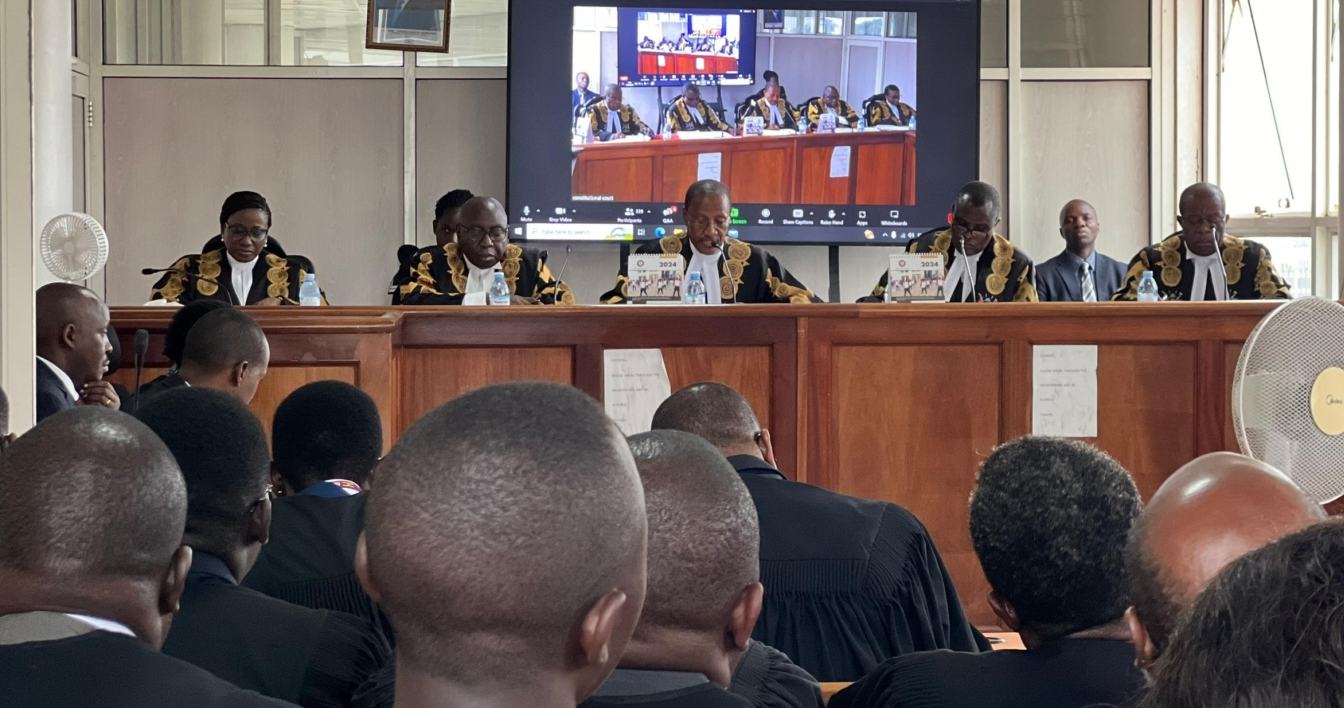
KAMPALA, Uganda — 22 LGBTQ+ activists in Uganda have appealed this month’s ruling that upheld the country’s Anti-Homosexuality Act.
The Constitutional Court on April 3 refused to “nullify the Anti-Homosexuality Act in its totality.”
President Yoweri Museveni last May signed the law, which contains a death penalty provision for “aggravated homosexuality.”
The U.S. subsequently imposed visa restrictions on Ugandan officials and removed the country from a program that allows sub-Saharan African countries to trade duty-free with the U.S. The World Bank Group also announced the suspension of new loans to Uganda.
Media reports indicate Sexual Minorities Uganda Executive Director Frank Mugisha and Jacqueline Kasha Nabagesara are among the activists who filed the appeal.
Los Angeles
LA leaders call for unity & protection for trans community
LAPD has noted a 13 percent increase in overall hate crimes, with LGBTQ+ specific hate crimes up by 33 percent
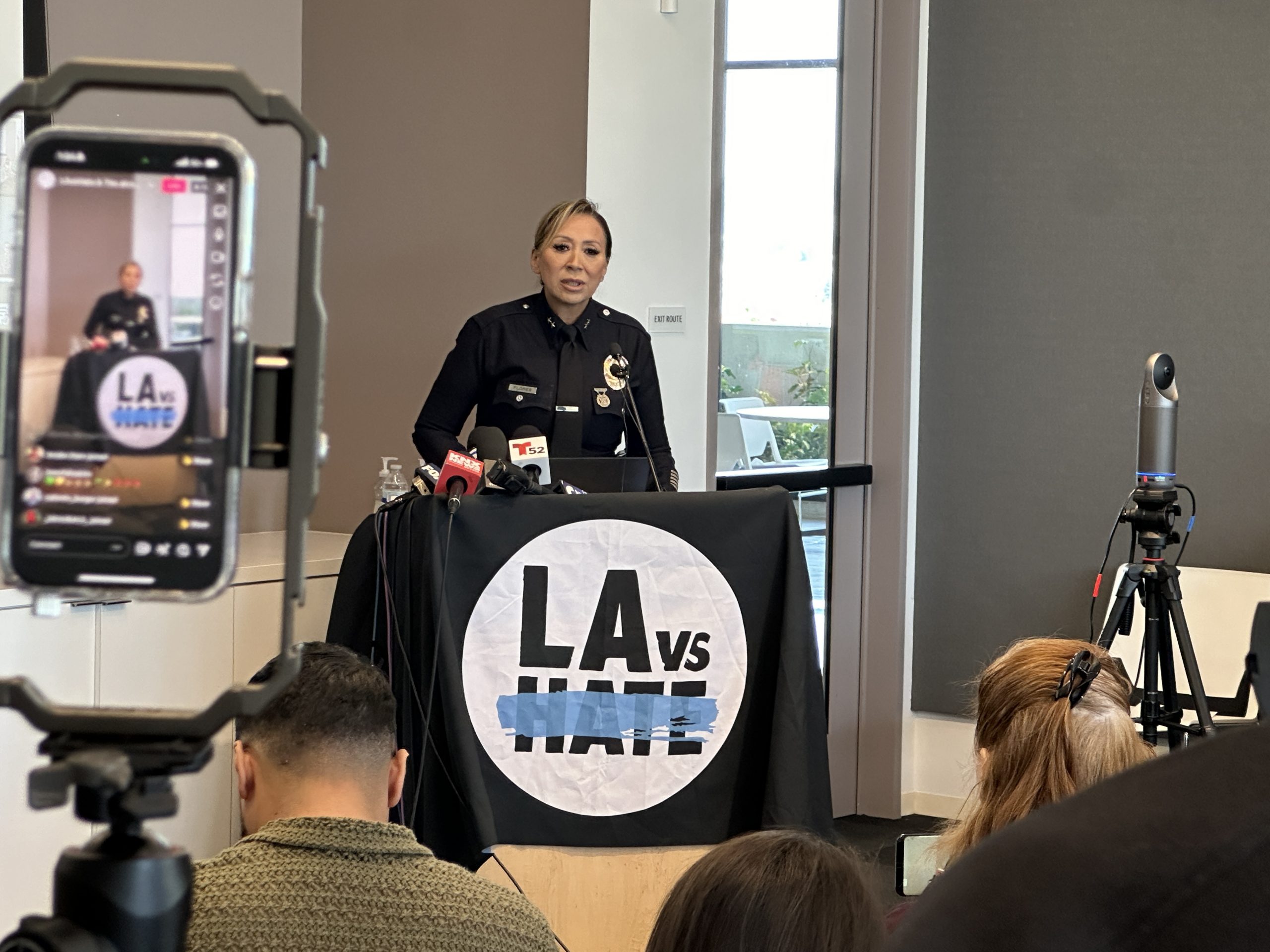
LOS ANGELES – Addressing a concerning escalation of threats against LGBTQ+ organizations throughout the country, leaders from TransLatin@ Coalition, the Los Angeles Police Department, and other officials gathered in a press conference to denounce acts of intimidation and to call for unity and protective measures for the trans and queer community.
A bomb threat called in to the LAPD on March 28, aimed at the TransLatin@ Coalition specifying today April 15 as the target date, has prompted an immediate and ongoing response from local authorities to ensure the safety of those at the coalition’s facilities and others. The LAPD has since been closely monitoring the site.
The suspect, identified as Henry Nolkemper, a white 61 year old male, was arrested by LAPD shortly afterward after being observed entering his residence on West 53rd Street. The police then searched his residence. Despite the absence of explosives, he was booked under serious charges including criminal threats with a hate crime enhancement.
Nolkemper, known to have a history of mental health issues, was on parole for previous threats to the community. His parole has since been revoked and he is currently held on a one million dollar bail.
The press conference today began with remarks from Robin Toma, Executive Director of LA vs Hate, who highlighted the organization’s role as the third largest source of hate crime reporting in Los Angeles, trailing only police sources.
He also stated that LA vs Hate has reported a troubling increase in trans-specific crimes, noting that such incidents are grossly underreported, a sentiment echoed by surveys within the trans community.
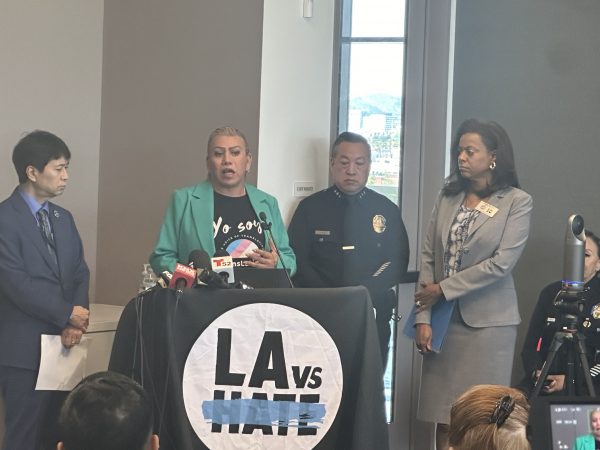
Bamby Salcedo, President and CEO of TLC, expressed her gratitude for the continued support from various partners and emphasized the daily challenges faced by transgender individuals. “Every day a trans woman steps out of her home, it is a revolutionary act. We are people who walk with targets on our backs,” Salcedo declared, setting a tone of resilience and defiance against the threats.
Special thanks were given to Supervisor Hilda Solis and Jury Candelario, a partner from APAIT and a Filipino immigrant, who marked 35 years in America by calling the trans-related stress “chronic” in his long tenure as a social worker. Esther Lim, representing Supervisor Solis, condemned the bomb threat as an act of “cowardice” and highlighted Solis’ support through a previous $55,000 contribution to TLC and a new motion to establish LA’s first LGBTQ+ commission.
Assistant Chief Blake Chow and Deputy Chief Ruby Flores of the LAPD provided updates on the legal actions following the threat. They noted a 13 percent increase in overall hate crimes, with LGBTQ+ specific hate crimes up by 33 percent. “Behind each hate crime, there is a victim, there are families,” Flores said, urging the community to report incidents and support anti-hate education initiatives. “These crimes affect people in ways statistics can’t reflect.”
The press conference also featured voices from the community like Mariana Marroquin, Associate Director of Trans Wellness, who spoke passionately about the ingrained nature of hate experienced by trans individuals from a young age, and Cari Maddox, who emphatically stated, “Hate has no home in Los Angeles.”
Mark Bayard, representing Los Angeles County District Attorney George Gascon, affirmed the DA’s commitment to fighting hate crimes vigorously, especially in light of the upcoming election season, which often sees a spike in such incidents.
As the community grapples with this latest threat, the message from today’s conference was clear: solidarity, education, and legal protection are key to combating hate and fostering a society where transgender people can integrate fully and safely.
U.S. Federal Courts
U.S. Supreme Court allows Idaho to enforce gender care ban
SCOTUS sides with state to allow enforcement of gender-affirming care ban for youth. Poe v. Labrador lawsuit remains ongoing.

By Mia Maldonado | WASHINGTON – The U.S. Supreme Court has allowed Idaho to enforce House Bill 71, a law banning Idaho youth from receiving gender-affirming care medications and surgeries.
In an opinion issued Monday, the U.S. Supreme Court granted the state of Idaho’s request to stay the preliminary injunction, which blocked the law from taking effect. This means the preliminary injunction now only applies to the plaintiffs involved in Poe v. Labrador — a lawsuit brought on by the families of two transgender teens in Idaho who seek gender-affirming care.
Monday’s U.S. Supreme Court decision enforces the gender-affirming care ban for all other transgender youth in Idaho as the lawsuit remains ongoing in the Ninth Circuit Court of Appeals.

The American Civil Liberties Union and the ACLU of Idaho, both of whom represent the plaintiffs, said in a press release Monday that the ruling “does not touch upon the constitutionality” of House Bill 71. The groups called Monday’s ruling an “awful result” for transgender Idaho youth and their families.
“Today’s ruling allows the state to shut down the care that thousands of families rely on while sowing further confusion and disruption,” the organizations said in the press release. “Nonetheless, today’s result only leaves us all the more determined to defeat this law in the courts entirely, making Idaho a safer state to raise every family.”
Idaho Attorney General Raúl Labrador in a press release said the state has a duty to protect and support all children, and that he is proud of the state’s legal stance.
“Those suffering from gender dysphoria deserve love, support and medical care rooted in biological reality,” Labrador said. “Denying the basic truth that boys and girls are biologically different hurts our kids. No one has the right to harm children, and I’m grateful that we, as the state, have the power — and duty — to protect them.”
Recap of Idaho’s House Bill 71, and what led to SCOTUS opinion
Monday’s Supreme Court decision traces back to when House Bill 71 was signed into law in April 2023.
The law makes it a felony punishable for up to 10 years for doctors to provide surgeries, puberty-blockers and hormones to transgender people under the age of 18. However, gender-affirming surgeries are not and were not performed among Idaho adults or youth before the bill was signed into law, the Idaho Capital Sun previously reported.
One month after it was signed into law, the families of two transgender teens sued the state in a lawsuit alleging the bill violates the 14th Amendment’s guarantee of equal protection under the law.
In late December, just days before the law was set to take effect in the New Year, District of Idaho Judge B. Lynn Winmill blocked the law from taking effect under a preliminary injunction. In his decision, he said he found the families likely to succeed in their challenge.
The state of Idaho responded by appealing the district court’s preliminary injunction decision to the Ninth Circuit, to which the Ninth Circuit denied. The state of Idaho argued the court should at least enforce the ban for everyone except for the plaintiffs.
After the Ninth Circuit’s denial, the Idaho Attorney General’s Office in February sent an emergency motion to the U.S. Supreme Court, the Idaho Press reported. Monday’s U.S. Supreme Court decision agrees with the state’s request to enforce its ban on transgender health care for minors, except for the two plaintiffs.
******************************************************************************************

Mia Maldonado joined the Idaho Capital Sun after working as a breaking news reporter at the Idaho Statesman covering stories related to crime, education, growth and politics. She previously interned at the Idaho Capital Sun through the Voces Internship of Idaho, an equity-driven program for young Latinos to work in Idaho news. Born and raised in Coeur d’Alene, Mia moved to the Treasure Valley for college where she graduated from the College of Idaho with a bachelor’s degree in Spanish and international political economy.
******************************************************************************************
The preceding piece was previously published by the Idaho Capital Sun and is republished with permission.
The Idaho Capital Sun is the Gem State’s newest nonprofit news organization delivering accountability journalism on state politics, health care, tax policy, the environment and more.
We’re part of States Newsroom, the nation’s largest state-focused nonprofit news organization.
Riverside County
Riverside County school district kills trans outing policy
MVUSD’s forced outing policy is identical to the Chino Unified School District policy which a judge described as “discriminatory on its face”

MURRIETA, Calif. – The Murrieta Valley Unified School District Board (MVUSD), abandoned its controversial policy that would have forced school faculty and staff to “out” trans and non-binary students to parents.
In an emailed sent out Friday to parents, faculty, and staff members, school district administrators noted that the policy was reversed.
The California Department of Education found that it violated the state’s education codes and warned MVUSD that the policy “provided no educational or administrative purpose that could justify the discrimination of LGBT+ students.” The Department of Education stated the policy “singles out and is directed exclusively toward one group of students based on that group’s legally protected characteristics of identifying with or expressing a gender other than that identified at birth.”
In its email, MVUSD noted that the policy “is inconsistent with Education Code Section 220 and for this reason the mandatory notification requirements set forth in BP 5020.1 will not be implemented.”
Last month the MVUSD school board voted 3-2 to keep the forced outing policy on the books even though, according to a Press-Enterprise report, MVUSD Board President Paul Diffley was warned by the district’s law firm, Atkinson, Andelson, Loya, Ruud & Romo (AALRR), that “‘going ahead (with the policy) in such an environment’ could cost the district $500,000 in legal expenses.”
After the board vote, two district educators, Jamie Goebel and Karen Poznanski, filed a complaint with the California Department of Education about the policy due to its “discrimination on the basis of gender identity and expression.”
“This policy not only violated the privacy and dignity of our students but also perpetuated harm and discrimination against LGBTQ+ individuals and their families,” Poznanski told the Press Enterprise once the California Department of Education sided with the teachers last week.
MVUSD’s forced outing policy is identical to the policy passed by Chino Unified School District (CVUSD) that California Superior Court Judge Michael Sachs described as “discriminatory on its face” and placed under a preliminary injunction in October 2023.
The lawsuit, The People of the State of California, Ex Rel. et al -v- Chino Valley Unified School District (San Bernardino County Superior Court Case No. CIVSB2317301), was introduced by California Attorney General Rob Bonta on August 28, 2023, and was placed under a temporary restraining order on September 6, 2023 prior to the October ruling.
Oklahoma
HRC paid ad highlights Owasso LGBTQ students like Nex Benedict
Marley H. describes her experience that included bullying, harassment, anti-gay slurs–and teachers, administrators who refused to step in
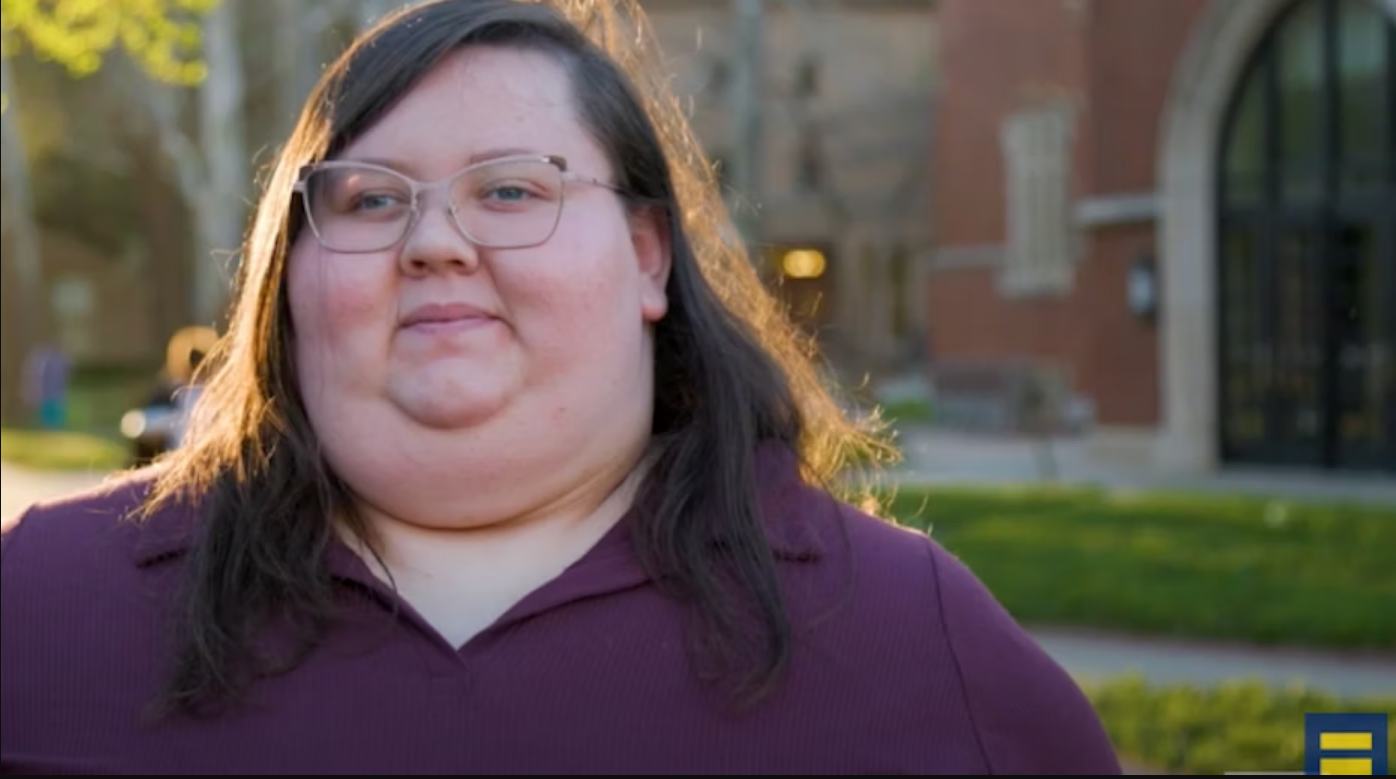
OWASSO, Okla. – Marley H., an Owasso High School grad and Oklahoman speaks to the culture of harassment and bullying she witnessed firsthand during her time in the Owasso school district, how it impacted her and her fellow students, and what she sees as the way forward for the district and state.
In this new video, which HRC will be promoting with a paid investment on social platforms, Marley speaks from her heart about what she and her fellow students experienced at Owasso High School, including bullying, the use of anti-LGBTQ+ slurs, harassment, and – worse still – teachers and administrators who refused to step in and disrupt this cycle of hate.
“It hurts to know that not only do your teachers personally not support you, if a student bullies you or harasses you or calls you names, they aren’t going to do anything about it,” said Marley H., who graduated from Owasso High School in 2022. “It promotes a culture where you feel like you shouldn’t report issues.”
The video’s release comes as the LGBTQ+ community marks two months since the death of Nex Benedict, a 16 year old Owasso student who died after being assaulted in their school bathroom and bullied and harassed for over a year.
In March, HRC launched “Walters Watch,” part of a high-impact accountability campaign to hold Ryan Walters, Oklahoma’s Superintendent of Public Instruction, accountable for his extremist rhetoric and mis-management of Oklahoma schools, contributing to the culture of bullying and harassment.
The HRC notes that “whether he is appointing far-right figures like “LibsOfTikTok” creator Chaya Raichik to state boards or demonizing teachers’ unions, Walters seems dead-set on using his role as Superintendent as a political stepping-stone rather than taking seriously his responsibility to Oklahoma students.”
Last month, the U.S. Department of Education informed HRC president Kelley Robinson that the department will open an investigation in response to HRC’s letter regarding Owasso Public Schools and its failure to respond appropriately to sex-based harassment that may have contributed to the tragic death of Nex Benedict.
This investigation was triggered by a formal complaint made by Robinson, who wrote to U.S. Secretary of Education Miguel Cardona and asked his department to use the enforcement mechanisms at its disposal to prevent similar tragedies from taking place in the future and to help hold accountable those responsible for Nex’s tragic death.
“We’ve heard many students at Owasso and elsewhere in Oklahoma speak truth to power and stand up against the culture of bullying and harassment fostered by people like Ryan Walters,” said Kelley Robinson, president of the Human Rights Campaign. “Marley’s story breaks our hearts as much as it angers us. There is a way forward, however. Each time someone speaks out about what they have seen, experienced, or heard, the truth becomes harder and harder to deny. The first step on the journey to healing is for Ryan Walters to go.”
Related:
******************************************************************************************
The Human Rights Campaign is America’s largest civil rights organization working to achieve equality for lesbian, gay, bisexual, transgender and queer (LGBTQ+) people. HRC envisions a world where LGBTQ+ people are embraced as full members of society at home, at work and in every community.
U.S. Federal Courts
Federal appeals court hears oral arguments in SAFE Act appeal
As of last November, similar laws had been enacted in 22 states, and legal challenges have been mounted in several of them
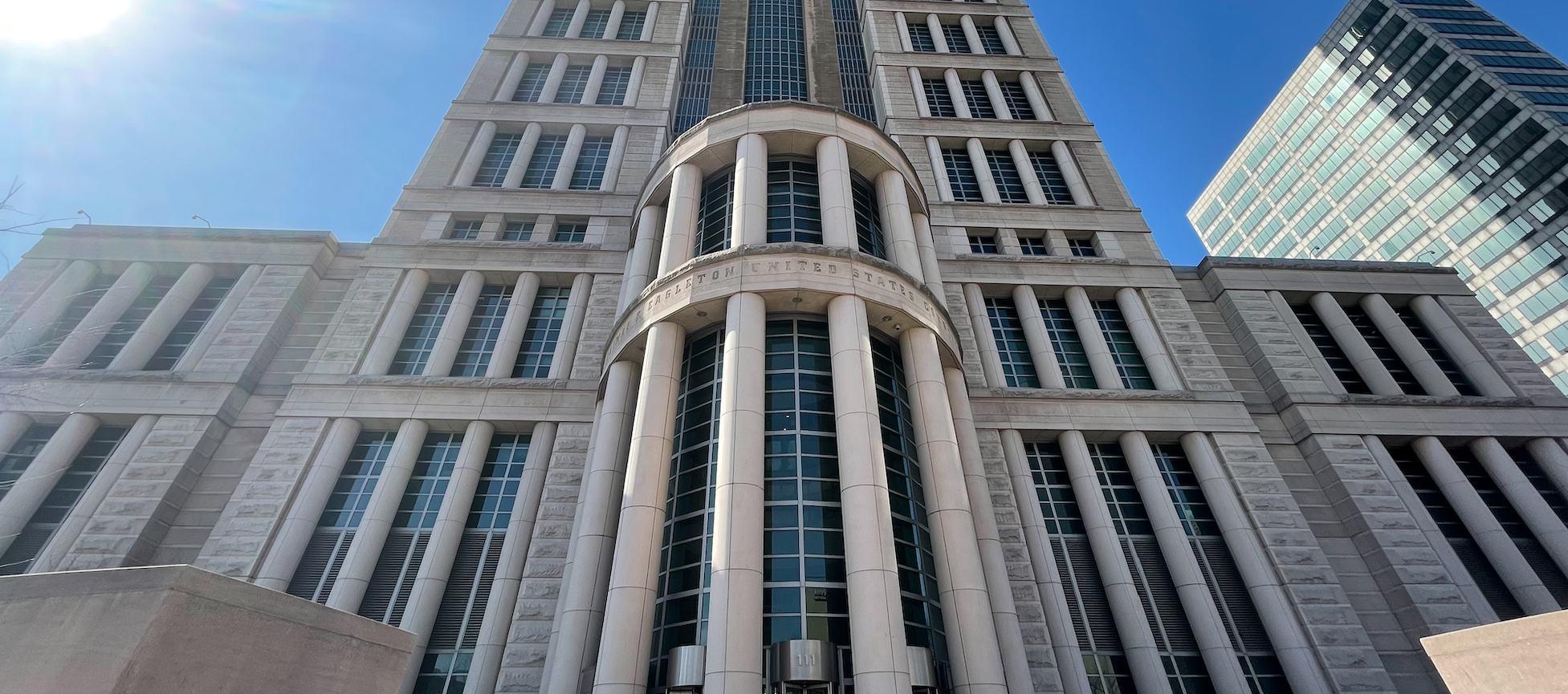
By Debra Chandler Landis | SAINT LOUIS, Mo. – Federal appeals court judges here on Thursday heard legal counsel for the national ACLU and the U.S. Department of Justice argue that transgender minors have a constitutional right to gender-affirming care, while Arkansas’ deputy solicitor general said a state law prohibiting such care was in the best interest of youth and not discriminatory.
At issue is the 2021 Save Adolescents from Experimentation (SAFE) Act, which bans physicians from providing gender transition treatments like hormones, puberty blockers and sex reassignment surgeries to individuals under age 18.
Four Arkansas families and two physicians, represented by the American Civil Liberties Union of Arkansas, challenged the SAFE Act in federal court, where U.S. District Judge James Moody struck down the law in June 2023, saying, among other things, that the SAFE Act discriminated against transgender people and violated the U.S. Constitution’s First and Fourteenth Amendments.

Arkansas Attorney General Tim Griffin appealed that decision in July 2023 to the 8th U.S. Circuit Court of Appeals. The state has argued there is no scientific evidence that children benefit from gender-affirming care and that the consequences can be harmful and often permanent for them.
Asked by the appeals judges whether the state law would ban health care providers from prescribing testosterone for conditions other than gender-affirming care treatment, Dylan Jacobs, Arkansas deputy solicitor general, said, “The statute does not prohibit that. The legislature wasn’t saying it has problems with testosterone.”
Regarding the district court’s ruling to strike down the ban on transgender care in Arkansas, Jacobs said “there are certainly risks, including sterilization” in the treatment, and noted it was not up to the district court to impose its own policy judgments.
ACLU attorney Chase Strangio, deputy director for the organization’s LGBTQ & HIV Project, told the appeals court Thursday they should uphold Moody’s ruling, noting, in part, that the state law undermines constitutional guarantees of equal protection and “supplants the judgment of parents and their abilities to determine medical care.”
Griffin has said his office “is fighting to protect our state’s children from dangerous medical experimentation. Moody, in his 80-page ruling striking the Arkansas law, affirmed the testimony of medical experts who said in their testimony for the plaintiffs that gender-affirming care is safe for minors.
The State of Arkansas, Moody wrote, “failed to prove that its interests in the safety of Arkansas adolescents from gender transitioning procedures or the medical community’s ethical decline are compelling, genuine, or even rational.”
In 2021, a letter from the American Medical Association to the National Governors Association referenced the Arkansas SAFE Act and said, in part: “Arkansas recently enacted SAFE Act and similar bills pending in several other states would insert the government into clinical decision-making and force physicians to disregard clinical guidelines.”
Gender-affirming care for minors, the AMA said, “must be sensitive to the child’s clinical situation, nurture the child’s short and long-term development, and balance the need to preserve the child’s opportunity to make important life choices autonomously in the future.”
The 8th Circuit Court of Appeals did not indicate when it might rule on the Arkansas law.
As of last November, similar laws had been enacted in 22 states, and legal challenges have been mounted in several of them. The U.S. Supreme Court has not yet taken up any of those cases.
******************************************************************************************

Debra Chandler Landis is a freelance journalist and retired University of Illinois Springfield college media adviser. She currently lives in St. Louis.
******************************************************************************************
The preceding article was previously published by The Arkansas Advocate and is republished with permission.
The Arkansas Advocate is a nonprofit, nonpartisan news organization dedicated to tough, fair daily reporting and investigative journalism that holds public officials accountable and focuses on the relationship between the lives of Arkansans and public policy. This service is free to readers and other news outlets.
We’re part of States Newsroom, the nation’s largest state-focused nonprofit news organization.
Political commentary & analysis
The Cass Review heralds how all trans medicine will die
In effect, the study research completely blew off the input of the people most affected by access to treatment
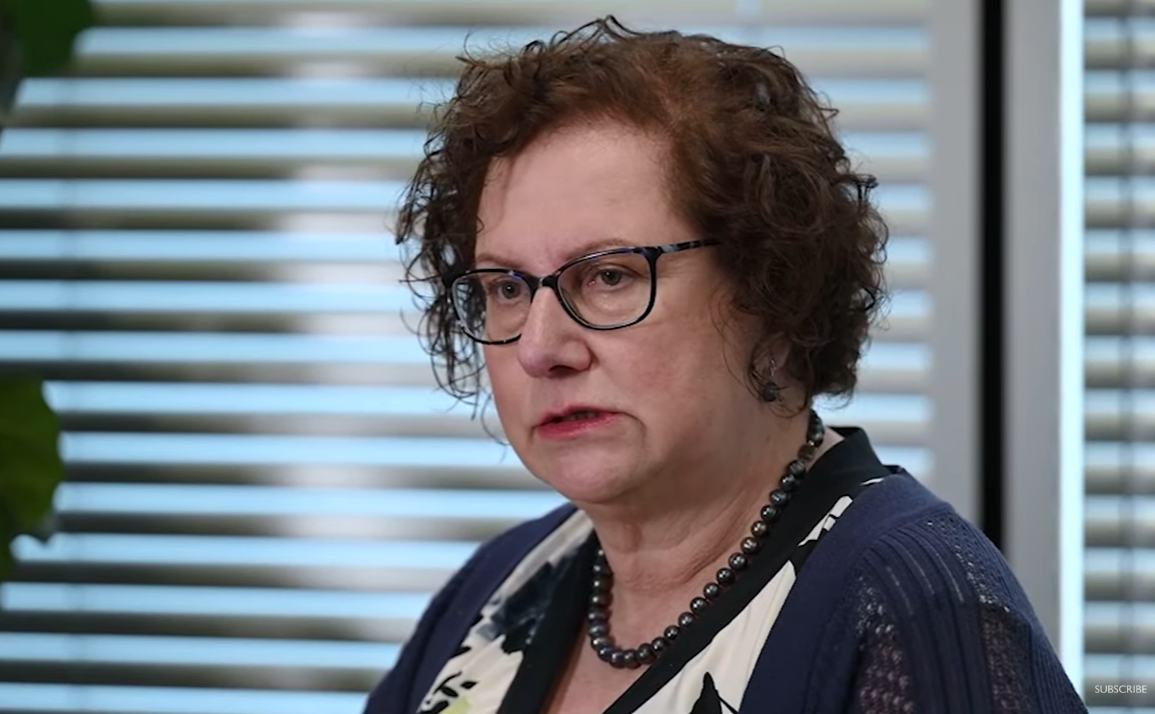
By Brynn Tannehill | FAIRFAX, Va. – This past week, the Cass literature review for the UK’s National Health Service for transgender youth was completed after four years in development. Although touted as independent, it was anything but. Dr. Hillary Cass consulted with far-right religious anti-trans activists like Patrick Hunter, and took cues on how to ban trans health care from Florida’s rigged process.
The results were predictable: it effectively recommends banning transition related care for anyone under the age of 25. Because of backlogs in the NHS system, this means that transgender people cannot even begin applying for care until they are 25 and will likely have to wait until they are 35, even if they have had a transgender identity since an early age. It also recommends a ban on social transitions, and any sort of social affirmation.
It arrived at these conclusions by disregarding any studies deemed “low quality”—that is, any study that wasn’t a randomized control trial and wasn’t double-blinded. This sets an impossible standard: you cannot double-blind a study where both the patient and the doctor will notice the physiological changes that come with taking the drug (or getting the surgery). The Cass review also failed to include their own findings that none of the patients reviewed were unhappy with the treatments, and only 8 detransitioned.
In effect, they completely blew off the input of the people most affected by access to treatment.
It’s also very difficult to get an randomized control trial study approved for youth, if the available evidence says a lack of treatment is likely to increase the risk of suicide. No IRB will sign off on something that is likely to turn into an LD50 study (kills half (50%) of the test subjects exposed to it).
Using this method, the Cass review was able to exclude well over a hundred studies on transgender youth health care and declare that there was no evidence supporting affirming care. It then recommended a “treatment” for which there is no evidence (talk therapy for 20 years, and hoping it goes away before the patient unalives themselves).
Sound like conversion therapy? Yes, that’s basically what it is. Hard stop.
You might think, “Oh, this is just the United Kingdom,” and that it doesn’t affect you. But it does. We have concrete evidence that Cass was coordinating with Ron DeSantis appointees, who in turn were selected for their religious fervor and connections with anti-LGBTQ+ hate groups in the US like the Alliance Defending Freedom. The Cass review illustrates how they are planning to end access to transgender health care for all adults in the US.
Basically, the process is to get a decision-making body (like the FDA) to commission a “review” of the evidence for health care for trans adults. The reviewers will be people who already know the outcome they want and who are only interested in p-hacking their way to a non-conclusion. The formula looks like this:
- Do a lit review.
- Find filters that excludes all of the evidence in support of health care for trans people (i.e. requiring RCT and double-blind for inclusion).
- Declare that there is no evidence for transition related care.
- Recommend “neutral” interventions like talk therapy, when there’s no evidence this works.
- The FDA or state medical boards use the phony lit review to justify bans on the use of any off-label treatments for gender dysphoria, along with any gender confirmation surgeries.
With the death of Roe v. Wade, this is entirely legal. SCOTUS won’t stop it; they’re likely to uphold the decision-making authority of supposedly neutral medical authorities, and the lit reviews commissioned by them. If Trump is elected, this will happen nation-wide. If he isn’t, we’re going to see roughly 25 states eventually ban health care for trans adults the way they did to trans youth.
The mass migration of trans people will become a stampede. They will flee either to blue states or seek asylum elsewhere. Transgender people will go back to the bad old days of self-medication, buying drugs from Vanuatu, and back-alley orchiectomies. The trans community won’t disappear merely because of this, but it’s part of the overall plan to “eradicate transgenderism” in the United States. Between banning access to care, making it a crime to appear in public dressed in accordance with your gender identity, mandating conversion therapy, de-recognizing transgender people and invalidating their IDs, kicking them out of the military, revoking their clearances, segregating them from the population by banning them from public places, and Trump promising internment camps capable of “processing” millions of people (including political enemies), the strategy for how the trans community in the US could be disappeared like it’s 1942 is coming into extremely sharp focus.
It won’t happen all at once. But the Cass review shows us how they plan on justifying the initial rules and regulations with the goal of making trans people flee, because most of the tuned-in trans will see the writing on the wall. The Cass review fulfills the same role as race science: it’s meant to justify the horrors that come next.
*******************************************************************
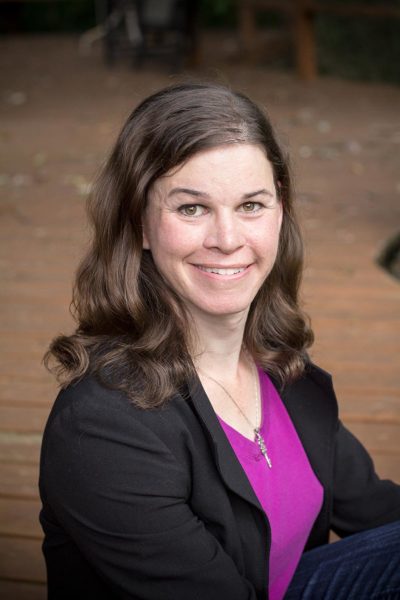
-

 West Hollywood4 days ago
West Hollywood4 days agoDavid Cooley makes emotional exit as owner of The Abbey WeHo
-

 Politics4 days ago
Politics4 days agoFirst Lady warns Trump is ‘dangerous to the LGBTQ community’
-

 Los Angeles5 days ago
Los Angeles5 days ago24-year-old trans Latina Angeleno & makeup artist shot to death
-

 Political commentary & analysis4 days ago
Political commentary & analysis4 days agoJimmy Kimmel Live’s hilarious faux ‘Out for Biden’ campaign ad
-
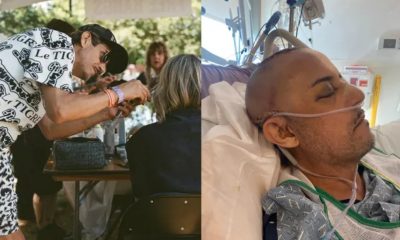
 West Hollywood2 days ago
West Hollywood2 days agoOut stylist found beaten outside Heart WeHo nightclub recovering
-

 Political commentary & analysis1 day ago
Political commentary & analysis1 day agoThe Cass Review heralds how all trans medicine will die
-

 Colorado4 days ago
Colorado4 days agoTransgender, nonbinary ICE detainees allege mistreatment at Colo. detention center
-

 Events5 days ago
Events5 days agoCynthia Erivo to be honored at LA LGBT Center Gala
-

 Los Angeles County5 days ago
Los Angeles County5 days agoCity of Malibu backing two bills aimed at making PCH safer
-

 West Hollywood3 days ago
West Hollywood3 days agoVinson is leading riders in 2024 WeHo Pride & Dyke march












